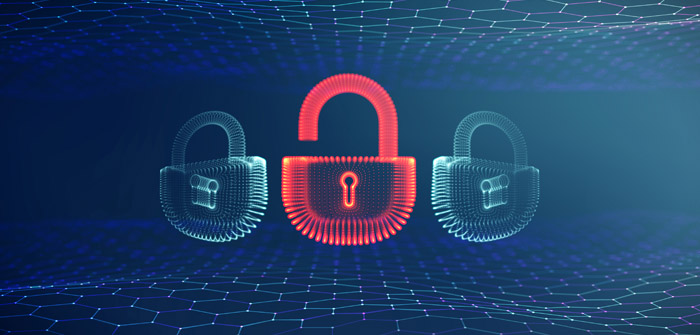Cybersecurity dangers are increasing at an alarming rate in today’s world, as nearly everything has gone online. Cybersecurity is the process of preventing illegal access to computers, networks, and other digital components by a third party.
Cyber threats are getting more complex and aggressive as remote work and reliance on digital devices are becoming more common. Many organizations are still protected by outdated security technology, exposing them to cyber threats.
Cyber threats can take many different forms. To secure businesses, workplaces must educate their employees about typical risks like phishing and ransomware attacks.

Team of Internationally Wanted Teenage Hackers Infect Servers and Infrastructure with Ransomware. Their Hideout is Dark, Neon Lit and Has Multiple displays.
Importance Of Protecting Businesses From Cyber Threats
Cybersecurity is critical because it safeguards all data types against theft and loss. Your company will be unable to protect itself against data breaches if it does not have a cybersecurity program in place, making it a target for cybercriminals.
If you have any information technology (IT)-related concerns, you may check out NYC IT consultants, NETSURIT and other similar consulting services. It’s crucial to be aware of such dangers, especially if you expose your business to a large audience through online channels.
Now, here’s what you need to know to keep your startup protected from cyber threats:
- Back Up Your Data
Files kept on sites should be backed up regularly. This should be done automatically daily if at all practicable. Data backup allows you to recover essential information in the event of a system crash or hard disk failure. Other data backups should be made if the initial backups result in data damage or hard drive failure.
You might lose the company’s critical information due to an unwelcome cyber-attack. As a result of an unexpected data breach, you may suffer significant commercial losses. To avoid data loss scenarios, consider backing up the relevant data.
Through this, any physical problems with your data servers won’t give you too much trouble. It will also aid in the protection of your company’s reputation.
- Verify The Accounts
As hackers often work from afar, a two-step authenticator or verification is a common safeguard. Anyone attempting to connect to your work email or bank account must provide a one-time pin or code delivered to your mobile phone as part of a two-step authentication process.
It is necessary to trace information back to its sources. This assists an organization in determining which users have access to company accounts that may hold sensitive information. Checking the identity of users regularly may help businesses protect their data and validate which accounts can only have access to the company’s data.
- Update Your Software
Existing features are improved through updates, which will enhance the software’s overall system functionality. By failing to update your software and continuing to use its older version, you expose your system to cyberattacks and slow down your program.
Updates make software impervious to malware and virus threats that aren’t patched. Examples of these tasks include repair of identified security gaps and deleting or correcting bugs. Updates can bring new features to your devices while also removing old ones.
It is critical to keep your software up to date to avoid becoming vulnerable to any cyber risks. This will help protect your company’s data and the seamless operation of your systems.
- Provide Cybersecurity Awareness Training
Employees will benefit from cybersecurity training to defend themselves and the firm from cyberattacks and threats. Internal resources with adequate knowledge build and deliver training, while bigger companies may purchase a retail solution tailored to the specific business.
It is crucial to train your employees to spot and correct threats through safety procedures. Likewise, it’s vital to ensure that your employees are aware of the hazards they may encounter and their responsibility in keeping your company data safe. This also helps your team members develop solutions if an IT specialist is unavailable to sort the problem.
- Consider Cybersecurity Insurance
Cybersecurity insurance is a contract that a company may buy to mitigate the financial risks of conducting business online. The insurance policy transfers part of the risk to the insurer in exchange for a monthly or quarterly charge.
Cybersecurity insurance protects organizations from claims and expenditures stemming from a data breach, hacking, or cyberattacks, such as lost revenue, related expenses, and harm to your company’s reputation.
This enables businesses to comply with legislation requiring them to notify consumers of a data breach involving personally identifiable information. It also safeguards organizations from threats of cyberattacks.
Takeaway
In terms of security, data have become the most valued thing. After all, hackers are unseen attackers capable of penetrating any weak link in security systems, thereby putting small and large businesses in danger of losing data. This is why it’s critical to remain vigilant online to secure consumers’ and companies’ sensitive information.





